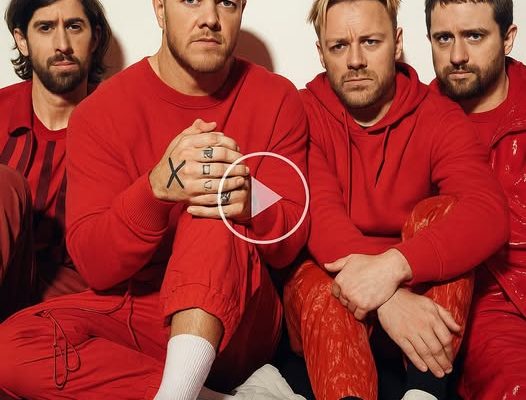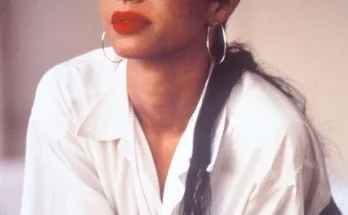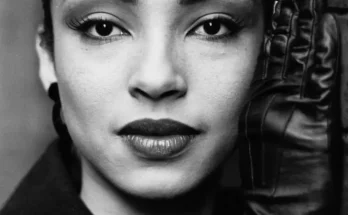Netflix has once again ignited excitement across the entertainment world with the release of the official trailer for its highly anticipated Imagine Dragons documentary, a project that promises to take fans on a deeply personal and visually stunning journey through the highs and lows of one of the most successful bands of the 21st century. The streaming giant has built a reputation for producing captivating documentaries that go beyond the surface of celebrity and artistry, and this time, it has turned its attention to a band whose music has dominated charts, inspired millions, and transcended genres over the past decade. With the trailer now out, the buzz is palpable, as fans and critics alike dissect every frame in anticipation of what could be one of Netflix’s standout musical features of the year.
From the very first moments of the trailer, it becomes clear that this is not just another band profile or a recycled concert film. Instead, it is a layered exploration of what it means to chase artistic ambition while navigating the very real struggles of life, family, fame, and personal growth. The Imagine Dragons documentary offers a window into the band’s journey that stretches from their early beginnings to their meteoric rise, while also delving into the vulnerabilities that fame often conceals. Netflix, known for its storytelling finesse, sets the tone with a trailer that blends intimate behind-the-scenes footage with explosive concert visuals, creating a balance between spectacle and sincerity.
Imagine Dragons, led by frontman Dan Reynolds, are no strangers to the spotlight. Since bursting onto the scene with hits like “Radioactive,” “Demons,” and “Believer,” they have become one of the most commercially successful acts in modern rock and pop, garnering Grammy Awards, breaking streaming records, and building a global fanbase that spans generations. Yet, behind the catchy hooks and arena-filling anthems lies a story of personal battles, creative struggles, and the search for meaning amidst the whirlwind of fame. The trailer hints at an unfiltered portrayal of Reynolds and his bandmates as they open up about the challenges of mental health, the toll of relentless touring, and the responsibility of using their platform for causes greater than themselves.
What makes this documentary so intriguing is not simply the promise of backstage anecdotes or the thrill of live performance footage, though both are present in abundance. It is the raw honesty with which Reynolds speaks about his own struggles with depression, faith, and identity, and the way the band has collectively navigated these challenges while continuing to make music that resonates worldwide. For years, Imagine Dragons have been labeled as one of the most polarizing bands in modern music—revered by fans for their uplifting energy and derided by critics for their formulaic sound—but this documentary seems determined to show that their story is far more complex than the narratives often told in the media.
The trailer features snippets of Reynolds speaking candidly about the pressures of being both a public figure and a husband and father, juxtaposed with shots of massive stadium crowds chanting along to the band’s songs. This duality—of the deeply personal and the overwhelmingly public—is at the heart of the film. It underscores the paradox of celebrity, where one’s art becomes communal while one’s struggles remain painfully individual. Netflix appears to have leaned into this tension, crafting a documentary that doesn’t just celebrate Imagine Dragons’ success but interrogates what that success has cost.
Longtime fans of the band are particularly excited because the documentary seems to weave together both the music and the mission that have defined Imagine Dragons. Beyond their chart-topping hits, the band has consistently used their platform to advocate for causes such as LGBTQ+ rights, mental health awareness, and pediatric cancer research. Reynolds, in particular, has become a notable activist, especially through his LoveLoud Festival, an annual event designed to support and empower LGBTQ+ youth. The trailer briefly touches on these initiatives, suggesting that the documentary will not shy away from showcasing how the band has attempted to bridge the gap between entertainment and advocacy.
What also stands out is the visual craftsmanship on display. Netflix has spared no expense in presenting the band’s story with cinematic flair, combining sweeping drone shots of stadium concerts with intimate close-ups that capture unguarded moments of reflection. The editing rhythm in the trailer mirrors the band’s signature style: powerful builds, emotional drops, and cathartic releases. This deliberate pacing evokes the emotional rollercoaster that Imagine Dragons’ music often provides, ensuring that the documentary will feel as immersive as their live performances. For fans who have followed the band since their early days, the trailer’s archival footage offers a nostalgic trip down memory lane, showcasing the group’s humble beginnings in Las Vegas before fame catapulted them to international stardom.
The anticipation surrounding this documentary also speaks to the enduring popularity of music-centered storytelling in contemporary media. Over the past decade, documentaries about artists such as Taylor Swift, Beyoncé, Billie Eilish, and Kanye West have found tremendous success, not only because they provide access to the lives of celebrities but because they humanize individuals often seen only through the lens of superstardom. Netflix, recognizing this appetite, has positioned the Imagine Dragons project as a similar cultural event—one that doesn’t just celebrate a band but examines broader themes of identity, resilience, and community.
The Imagine Dragons documentary arrives at a particularly interesting moment in the band’s career. While their earlier albums like Night Visions and Smoke + Mirrors cemented their place in mainstream music, their later projects have seen both commercial success and critical scrutiny. Some argue that their sound has become too polished or repetitive, while others believe their ability to consistently produce anthems that connect with listeners is a testament to their staying power. This film seems poised to address those conflicting perceptions head-on, offering viewers a deeper understanding of the choices and compromises that come with sustaining relevance in a fast-moving industry.
Another point of interest hinted at in the trailer is the exploration of the band’s interpersonal dynamics. While much attention is often given to Reynolds as the charismatic frontman, Imagine Dragons’ sound is equally shaped by guitarist Wayne Sermon, bassist Ben McKee, and drummer Daniel Platzman. Their camaraderie, creative synergy, and occasional tensions appear to be woven into the narrative, reminding viewers that a band’s journey is never just about one person but about the collective push and pull of personalities working toward a common goal. The documentary promises to shine a light on these relationships, revealing both the harmony and friction that fuel their artistry.
The response to the trailer has been swift and enthusiastic. Social media platforms lit up with fans sharing their excitement, dissecting every scene, and speculating about the documentary’s full content. Hashtags related to Imagine Dragons trended worldwide shortly after the trailer dropped, further underscoring the band’s global reach. Critics have also weighed in, noting the potential for the film to redefine public perception of the band by highlighting the depth of their journey rather than just the surface-level debates about their music. For Netflix, this level of engagement is a strong indicator that the documentary will be a streaming success upon release.
As anticipation builds, it is worth considering what this documentary might mean in the larger context of music history. Imagine Dragons have always occupied a unique space in the cultural landscape: too mainstream for indie purists, too experimental for pop traditionalists, and too emotional for hardened rock critics. Yet, this very hybridity is what has allowed them to connect with millions of listeners across demographics and geographies. By chronicling their story, Netflix is not just capturing the rise of a band but documenting a moment in popular culture defined by genre-blending, global accessibility, and the democratization of music through streaming platforms.
Ultimately, the Imagine Dragons documentary is shaping up to be more than just a fan-service feature. It appears to be a thoughtful meditation on the intersection of art, fame, activism, and humanity. With its blend of high-energy concert footage, vulnerable interviews, and behind-the-scenes access, it promises to deliver an experience that is as emotionally powerful as the music that has made the band famous. For Imagine Dragons, this is an opportunity to reclaim their narrative, to show the world not just who they are on stage but who they are when the lights dim and the crowds fade. For Netflix, it is another testament to its ability to transform artist documentaries into cultural milestones. And for fans, it is the chance to walk alongside a band that has provided the soundtrack to so many moments of joy, struggle, and triumph over the past decade.
As the trailer continues to generate buzz, one thing is certain: when the full documentary finally premieres, it will not only draw millions of viewers but also spark conversations about the role of music, vulnerability, and authenticity in an age when celebrity often feels more manufactured than real. Imagine Dragons have never claimed to be perfect, and in many ways, their imperfections are what make them relatable to their fans. By allowing Netflix to tell their story with honesty and cinematic scope, they are inviting the world to see them in a new light—one that acknowledges the weight of their challenges while celebrating the power of their music to inspire hope.



